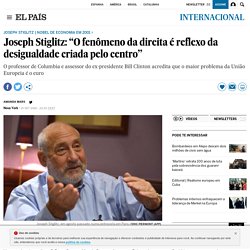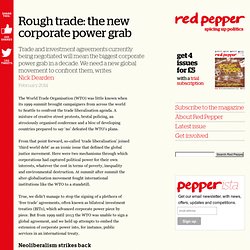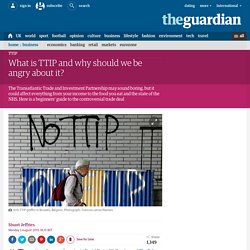

O histórico da relação comercial entre Brasil e Estados Unidos. ELI5: The Trans-Pacific Partnership deal : explainlikeimfive. International Relations Policy Groups. Joseph Stiglitz: “O fenômeno da direita é reflexo da desigualdade criada pelo centro” No outono de 2015, Joseph Stiglitz (Gary, Irlanda, 1943) dizia: o euro atual “é um desastre”, qualquer outra coisa “seria melhor”, inclusive quebrar a zona do euro.

Um ano depois, no livro O Euro: Como a Moeda Comum Ameaça o Futuro da Europa (inédito no Brasil), o Nobel de Economia afirma que só uma reforma da união monetária, com uma sorte de “euro flexível”, poderia salvar o futuro do clube europeu. Stiglitz recebe a reportagem em seu escritório na Universidade Columbia, onde mostra um verdadeiro interesse pela situação política da Espanha. Assessor principal do ex-presidente Bill Clinton, ele admite que os grandes partidos dos EUA não atenderam aos perdedores da globalização e que Donald Trump soube ler melhor a frustração dos norte-americanos. Pergunta. Em seu livro, o Sr. diz que o euro é o maior problema da União Europeia. Resposta. P. R. P. R.
P. R. P. R. P. Rough trade: the new corporate power grab. The World Trade Organisation (WTO) was little known when its 1999 summit brought campaigners from across the world to Seattle to confront the trade liberalisation agenda.

A mixture of creative street protests, brutal policing, an atrociously organised conference and a bloc of developing countries prepared to say ‘no’ defeated the WTO’s plans. From that point forward, so-called ‘trade liberalisation’ joined ‘third world debt’ as an iconic issue that defined the global justice movement. Here were two mechanisms through which corporations had captured political power for their own interests, whatever the cost in terms of poverty, inequality and environmental destruction. At summit after summit the alter-globalisation movement fought international institutions like the WTO to a standstill.
True, we didn’t manage to stop the signing of a plethora of ‘free trade’ agreements, often known as bilateral investment treaties (BITs), which advanced corporate power piece by piece. The fight this time. Noam Chomsky: America’s corporate doctrine of power a grave threat to humanity. (Foreign) Policy. What is TTIP and why should we be angry about it? “Sometimes,” says a character in David Foster Wallace’s novel The Pale King, “what’s important is dull.

Sometimes it’s work. Sometimes the important things aren’t works of art for your entertainment.” It is worth bearing that in mind as we consider TTIP, the most boring thing we’re supposed to get angry about since – ooh … was it PFI schemes that nobbled hospitals, eviscerated schools and left Britain £222bn in debt? Or was it the asymmetrical constitutional ramifications inherent in the West Lothian question? Or George Osborne’s incomprehensible pension changes involving auto-enrolment annuities, tax wrappers, pots and draw-downs? Add up the boredom you experienced on each of those occasions, multiply the result by the international coefficient of tedium (which, as you know, is 27.5) and that’s how bored the international trade deal known as TTIP will make you. So, what is TTIP? Remember when acronyms starting with two TTs were lovely things such as TTFN (ta-ta for now)? But seriously.
So called free trade agreememts.